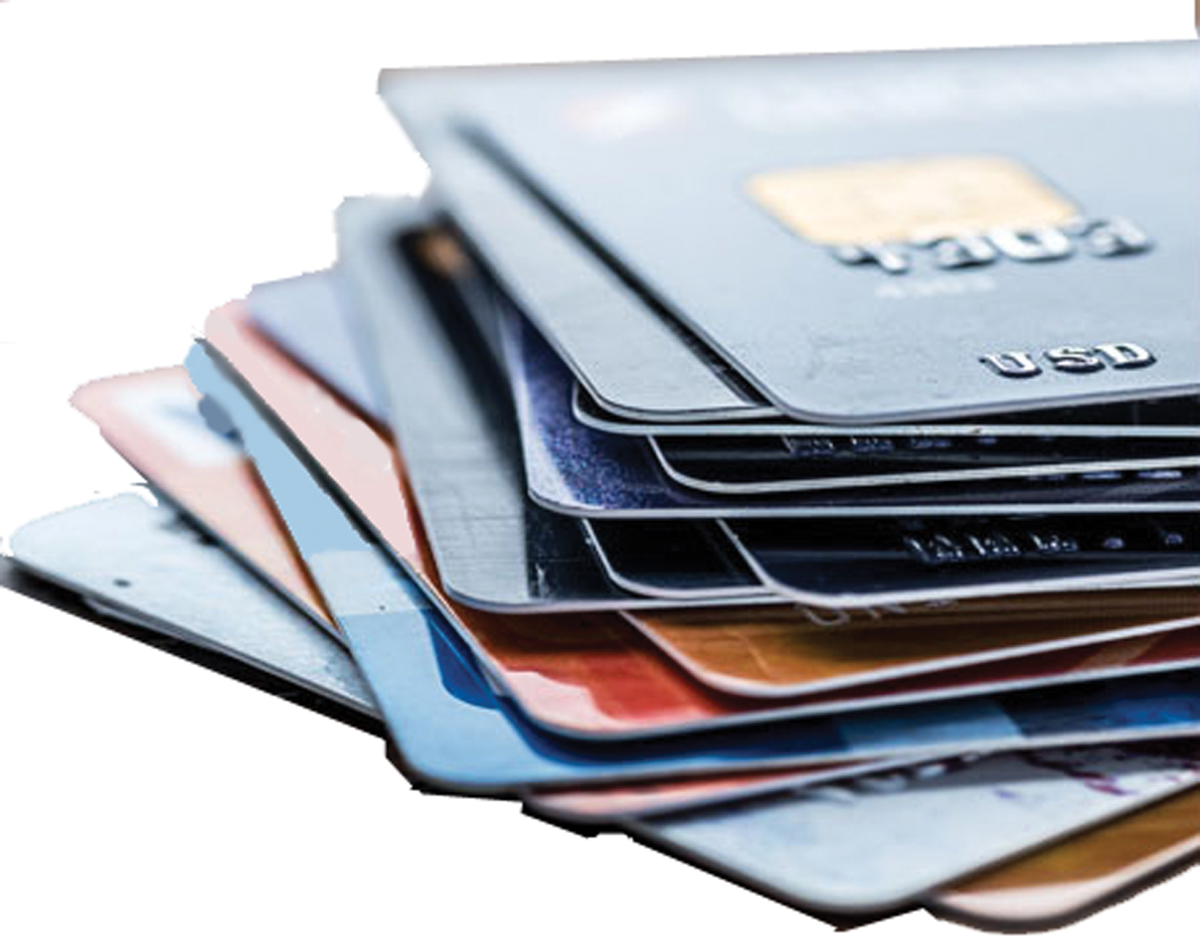Fewer Using Credit Cards, But Debt at Record High
More than a fourth – -27.1 percent – of Montana households do not use credit cards.
Three percent of Montana households are “unbanked”. They do not have credit cards, checking accounts or savings accounts. Another 11.5 percent utilize alternatives to banks and are categorized as “underbanked”, according to Upgraded Points, a consumer information center for travelers. The national average of households without credit cards is 28.5 percent.
Underbanked are households with a checking or savings bank account but who also relied on check cashing, money orders, international remittances, payday loans, rent-to-own services, pawn shop loans, etc.
Nationally, the share of households that are unbanked is 4.5 percent; and those underbanked is 14.1 percent.
Upgraded Points calculated the share of households that do not possess any Visa, Mastercard, American Express, or Discover credit cards in the past 12 months. The report estimates that 123,847 households in Montana do not use credit cards. As a ratio to the population, Montana ranks 25th among states as to households without credit cards, based upon the rejection rate by banks because they lack a credit record or are credit unworthy.
While the available credit to American consumers has reportedly declined, credit card indebtedness reached a record in the second quarter this year at $1.03 trillion, according to the New York Federal Reserve Bank. Total household debt exceeds $17 trillion, with 72.4 percent of that coming from mortgages and home equity lines of credit.
Credit card balances increased by $45 billion, from $986 billion in the first quarter of 2023 to a series high of $1.03 trillion in the Q2 2023, marking a 4.6 percent quarterly increase. Credit card accounts expanded by 5.48 million to 578.35 million. Aggregate limits on credit card accounts increased by $9 billion and now stand at $4.6 trillion.
Montana ranks 43rd in terms of the average debt per credit card holder at $6,160, according to scholaroo.com. Among cardholders with unpaid balances, the national average for card debt stands at $7,227. According to TransUnion millennials have become record setters as to who is behind on credit card payments since the start of the pandemic.
Connecticut residents bear the highest average debt of $9,408, surpassing the national average by 30 percent. Following closely are credit card debtors in New York, holding the second position with an average debt of $9,165. Kentucky has the lowest average credit card debt, with debtors owing just $5,408.
Upgraded Points explains the increased rejection of applicants for credit cards placing much of the reason on inflation and increased interest rates. Banks can respond to these constraints in several ways. Often, they simply pass on higher interest rates to consumers. But in many cases, the banks may also get choosier about issuing credit, whether by limiting how much they lend out or raising the standards for borrowers to get approved. This increased scrutiny can be felt across all lending products, from bank and vehicle loans, to consumer credit cards “that many Americans rely on every day.”
In this environment, more people’s credit card applications are being denied. The rejection rate for credit card applications as of June 2023 sits at 22 percent, one of the highest rates in a decade. After falling to a low of 10 percent in February 2020, the rejection rate spiked to 26 percent in just one year. Credit card rejection rates fell briefly in 2021 but have risen steadily over the last year.
Big-picture economic trends can certainly affect how likely a credit card application is to be approved, but credit card companies are also always looking at factors specific to each application when making an approval decision. Common reasons for rejection include low credit scores, high levels of debt, a history of late payments or bankruptcy, and insufficient income. But the biggest obstacle for many applicants is a “chicken or the egg” dilemma: it’s harder for someone to get approved for credit if they don’t already have a credit history, reports Upgraded Points.


0 comments